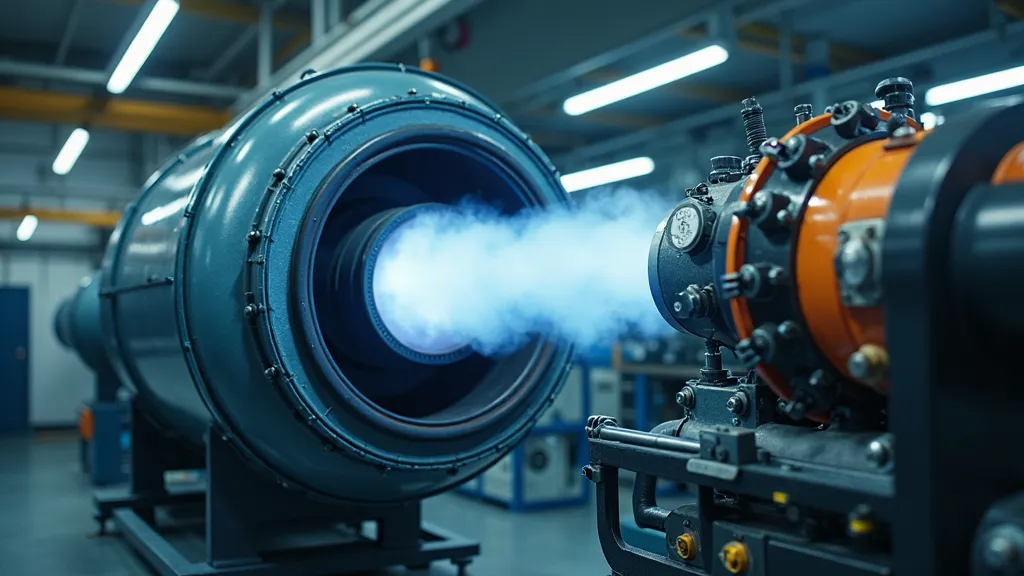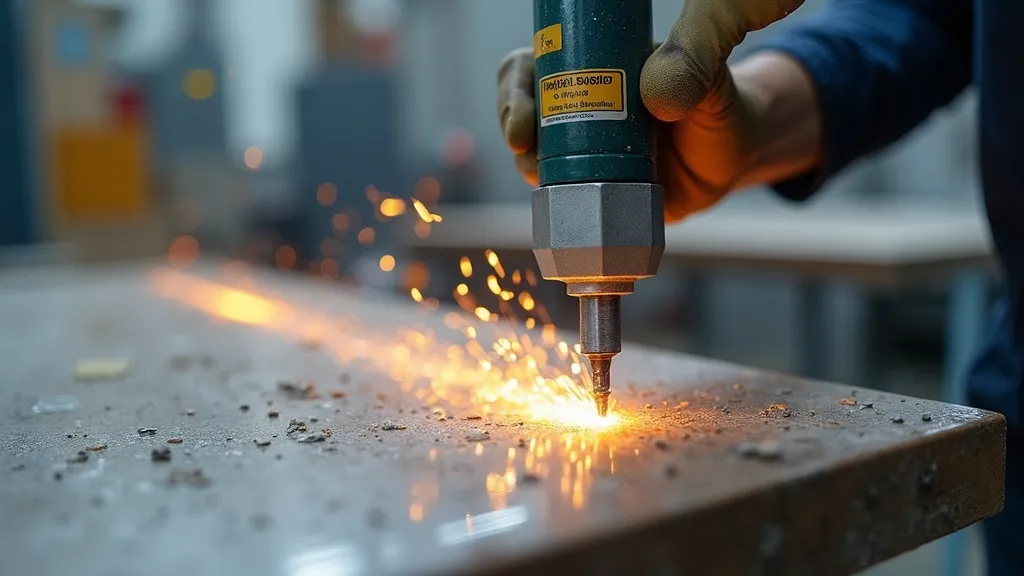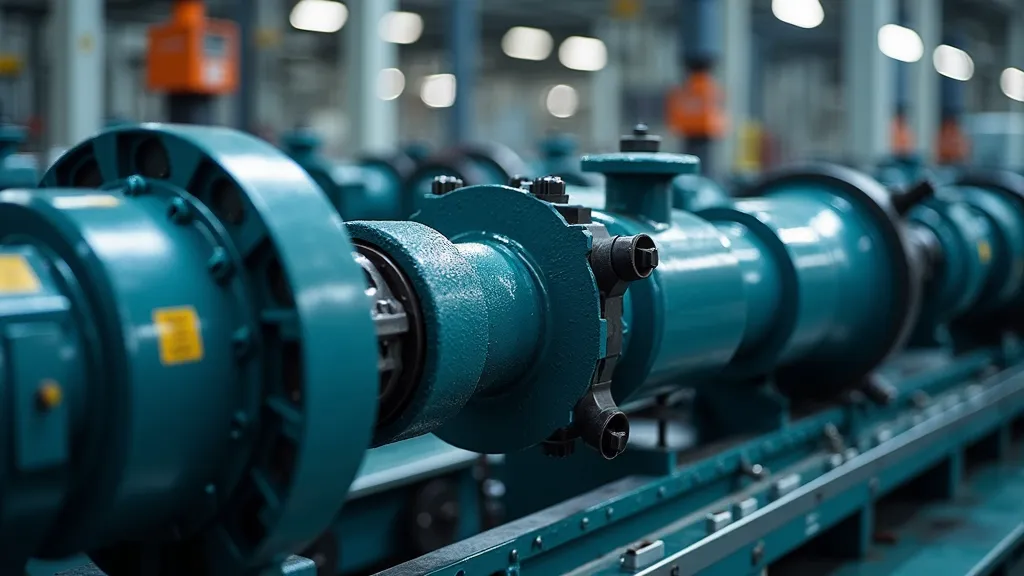Understanding Revolutionary Emflex Innovations
Emflex represents a groundbreaking advancement in materials technology with potential applications across diverse industries. Known for its superior strength, flexibility, and adaptability, Emflex offers innovative solutions in sectors like construction, automotive, and aerospace. This article delves into its properties, potential uses, and the significance of this material in shaping future technologies.

Exploring Emflex: A New Era in Materials Science
Within the constantly evolving landscape of materials science, Emflex emerges as a revolutionary component poised to redefine numerous industries. As businesses increasingly rely on materials that offer unparalleled strength, flexibility, and resilience, the introduction of Emflex promises unprecedented enhancements across various fields. This material is not merely an evolution; it is a sphere of content innovation that brings with it a paradigm shift for manufacturers and developers alike.
The Properties that Define Emflex
Emflex is celebrated for its unique combination of attributes that set it apart from traditional materials. Known for its remarkable tensile strength, this state-of-the-art material exhibits substantial flexibility that allows it to withstand significant stress without breaking. This quality is particularly valuable in applications where safety and durability are paramount, creating opportunities for new designs that leverage Emflex’s unique characteristics. Furthermore, Emflex's lightweight nature makes it an attractive choice for industries such as aerospace, automotive, and construction, where weight reduction is critical to efficiency and performance. Its superior thermal and electrical conductivity also opens doors for high-tech applications that were previously unattainable with standard materials.
Potential Applications of Emflex across Industries
The versatility of Emflex paves the way for its utilization in numerous sectors. In construction, Emflex can be employed to create structures that are not only robust but also capable of withstanding environmental extremes. As the world faces more intense climate conditions due to global warming, the need for resilient building materials that can endure varying weather patterns becomes ever more critical. Simultaneously, the automotive industry can benefit significantly from Emflex's properties to produce vehicles that are lighter, more fuel-efficient, and environmentally friendly. This not only contributes to better performance but also aligns with the automotive industry's increasing focus on sustainability.
Aerospace Innovations with Emflex
In aerospace, where material performance directly impacts safety and efficiency, Emflex offers promising applications. It can be used in the development of aircraft components that demand minimal weight without compromising strength, thereby enhancing fuel efficiency and reducing emissions. The implications of utilizing Emflex in aircraft are profound, as even slight reductions in weight can lead to substantial cost savings in fuel consumption over the lifespan of an aircraft. This innovative material could be a game-changer for the aviation industry, potentially revolutionizing how aircraft are designed and manufactured.
Technological Advancements Fueled by Emflex
The adaptability of Emflex does not end with traditional applications. As technology advances, this material shows potential in more groundbreaking areas such as flexible electronics, wearable technology, and even medical devices. Its integration into electronic circuits could lead to more durable and flexible devices, paving the way for innovations in consumer electronics. For example, imagine smartphones or laptops that can bend without breaking or wearable devices that can adapt to various activities and environments without compromising their integrity. Such developments could lead to new markets and enhance consumer experiences.
Industry Impact and Future Prospects of Emflex
As the global market increasingly prioritizes sustainability and efficiency, Emflex finds itself at the forefront of a materials revolution. Its potential to reduce material consumption while delivering superior performance aligns with efforts to create more sustainable industrial practices. Industry experts anticipate that, as research continues, Emflex will reveal even more applications, contributing to future technological advancements. The integration of Emflex in production processes could also lead to reduced waste and energy consumption, allowing companies to meet their environmental goals more effectively.
Comparative Analysis: Emflex vs. Traditional Materials
| Feature | Emflex | Traditional Materials |
|---|---|---|
| Strength | High tensile strength | Varies by type; often limited |
| Weight | Lightweight | Often heavier, impacting efficiency |
| Flexibility | High flexibility | Limited in elasticity |
| Recyclability | Yes, eco-friendly | Varies; many are non-recyclable |
| Thermal Conductivity | Exceptional | Limited |
| Cost Efficiency | Initial investment may be higher | Generally lower initial costs |
| Durability | High durability with extended lifespan | Varies but generally lower |
| Resistance to Environmental Factors | Excellent; withstands extreme conditions | Varies; often susceptible |
Challenges and Considerations in the Adoption of Emflex
While Emflex presents an enormous potential for transforming industries, it faces several challenges that could impact adoption. One significant consideration is the cost of production. The advanced technology and processes required to manufacture Emflex may result in higher initial costs compared to traditional materials. For small businesses or start-ups, this could act as a barrier to entry. However, as production techniques improve and scale increases, the hope is that these costs will decrease over time, making Emflex more accessible to a wider range of businesses.
Another challenge is the need for education regarding the properties and benefits of Emflex. Many organizations are still entrenched in traditional material practices, which can make it difficult to move toward adopting new technologies. Creating awareness and providing educational resources about Emflex, its advantages over conventional materials, and successful case studies could help in overcoming this inertia. Furthermore, developing industry standards for the use of Emflex may play an essential role in promoting its acceptance across various sectors.
Real-world Implementations of Emflex
An increasing number of case studies highlight the successful application of Emflex in real-world scenarios. In the construction industry, Emflex-reinforced concrete has shown promise in increasing structural resilience and lifespan while reducing weight. Construction firms using Emflex materials have noted a significant decrease in project timelines due to the speed of installation and the material's workability. For instance, in a recent high-rise project in a hurricane-prone area, builders utilized Emflex to enhance the building's structural integrity, thereby ensuring increased safety for occupants.
In the automotive industry, several prototypes of electric vehicles have successfully incorporated Emflex materials into their frames, leading to weight reductions of up to 15%. These improvements not only enhance performance but also allow increased range for electric vehicles, addressing a common concern among potential buyers. As these vehicles hit the market, they could demonstrate the promising potential of Emflex to revolutionize automotive design.
The Role of Research and Development in Emflex Advancements
Ongoing research and development efforts to further investigate the properties and applications of Emflex are crucial for its future growth and effectiveness. Collaborative efforts between material scientists, engineers, and industry stakeholders can lead to a deeper understanding of the material's capabilities, aiding in the optimization of its attributes for specific applications. Universities and research institutions are pivotal in performing empirical studies and experimental trials that validate the claimed benefits of Emflex. These collaborative projects can result in new breakthroughs, enhancing the material's properties and paving the way for innovative applications.
Conclusion: The Future of Emflex in Materials Science
Emflex is more than just a new material; it signifies a shift toward smarter, more efficient manufacturing and design across many industries. Its unique properties provide opportunities for innovation, creating a foundation for new methodologies and applications that prioritize sustainability without compromising performance. With continued research, education, and development, Emflex may not only redefine existing practices but also lead the way for breakthrough discoveries that transform how we think about materials science in general.
FAQs
- What makes Emflex so durable?
Emflex's durability stems from its unique molecular structure, enabling it to maintain integrity under significant stress and environmental conditions. The polymer chains within its structure are designed to resist degradation over time, making it ideal for applications where longevity is essential. - Can Emflex be recycled?
Yes, Emflex is designed to be recyclable, supporting eco-friendly manufacturing processes and reducing waste. Companies investing in Emflex are encouraged to adopt closed-loop production systems, enhancing sustainability and reducing their carbon footprint. - Is Emflex cost-effective for small businesses?
While initial costs may be higher, the added benefits in performance and sustainability can outweigh the investment for many businesses. The long-term savings derived from reduced maintenance, increased longevity, and lower energy consumption often make Emflex a sound investment. - How does Emflex impact environmental concerns?
Emflex has a lower environmental impact than traditional materials; it requires less energy in production and is often designed to be more sustainable in its lifecycle. These features contribute to reduced carbon footprints for companies that adopt Emflex in their operations. - Are there any limitations to Emflex?
While Emflex offers many advantages, it is not without limitations. The technology is still evolving, and some applications may require further research and experimentation to fully harness its potential. Additionally, initial costs and integration into existing systems may pose challenges for some industries.








